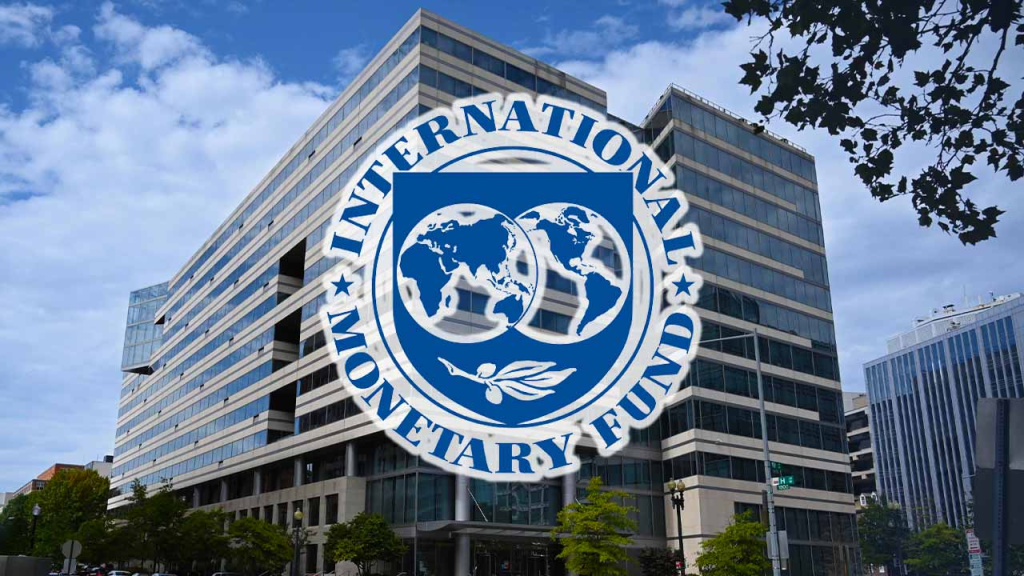By Emma Ujah & Babajide Komolafe
Washington DC- The renewed focus of the International Monetary Fund (IMF) on tracing Illicit Financial Flows (IFFs) could plug Nigeria’s fiscal leakages, the Managing Director (MD)of the global institution, Ms. Kristalina Georgieva, has said.
She spoke while engaging with Civil Society Organisations (CSOs) at the ongoing 2025 Annual Meetings of the IMF and World Bank in Washington DC.
He words, “We believe that for countries like Nigeria, the IMF’s renewed focus on tracing Illicit Financial Flows could provide a blueprint for plugging the fiscal leakages that have long undermined revenue generation and sustainable growth”.
The MD warned of the growing threat of illicit financial flows (IFFs) phenomenon which she said has become a major factor undermining the economic and financial stability of nations across the globe.
According to the Fund, illicit financial flows — which include stolen public funds, proceeds from criminal activities, and untraceable digital transactions — continue to erode governance systems, drain public resources, and cripple developmental efforts, especially in developing economies.
In a recent policy briefing, IMF officials noted that IFFs now come in “multiple dimensions.” These range from outright embezzlement of taxpayers’ money to private funds channeled into illegal ventures that threaten national welfare. The digital economy, they added, has further complicated the challenge with cryptocurrencies like Bitcoin providing an avenue for anonymous financial transactions.
She said, “You may have money just plainly stolen — money that belongs to the taxpayers. You may have private money directed for criminal activities undermining the welfare of citizens,” the Fund noted. “Now with digital money, criminal activities can be funded without being traced. This is a serious problem, and we have to take it as such.”
IMF’s Strategy to Combat Dirty Money
In response, the IMF disclosed that it has strengthened its Anti-Money Laundering and Combating the Financing of Terrorism (AML/CFT) framework, following a comprehensive review in 2023.
The Fund outlined four key pillars guiding its current strategy:
Mandatory Financial Surveillance:
She said “Following the money” has now become a compulsory part of the IMF’s annual Article IV consultations — the standard economic health check for member countries. This ensures that the Fund routinely assesses each nation’s exposure to illicit flows and financial integrity risks.
The MD added that the IMF is embedding lessons from past experiences into its financial sector evaluation tools to better trace illicit transactions and vulnerabilities.
In addition, she said for countries seeking IMF financial assistance, any program design will now include specific measures to address the problem of illicit flows, particularly where such challenges are deemed systemic.
Ms. Georgieva also said the Fund was supporting member countries through technical assistance and training to enable local authorities to detect, trace, and respond effectively to suspicious financial activities.
“We need to train country authorities so they can trace illicit financial flows, be more alert, and act quickly” she stated, adding “Digital tools help in tracking money, but they also create new avenues for evading oversight.”
Governance and the Way Forward
The MD emphasized that curbing illicit financial flows goes beyond financial systems to the very core of governance and institutional integrity.
Through its Governance Diagnostics initiative, the Fund was helping countries identify structural weaknesses that allow corruption and financial crimes to thrive.
“The governance diagnostic is not an audit,” the MD clarified, and that “It is about identifying vulnerabilities in the institutional setup — the breeding grounds for problems — and proposing reforms to address them.”
She encouraged greater collaboration among government agencies, civil society organizations, and international partners in tackling the menace.
Her words, “We ask our teams to engage with civil society and non-government institutions because they often know where the vulnerabilities lie. Working together, we can build trust and achieve more.”
The MD commended ongoing partnerships with countries like Sri Lanka and Kenya, which have embraced collaborative frameworks to combat financial crimes while strengthening governance structures.
The post IMF’s renewed focus on tracing Illicit Financial Flows to plug Nigeria’s fiscal leakages – MD appeared first on Vanguard News.

